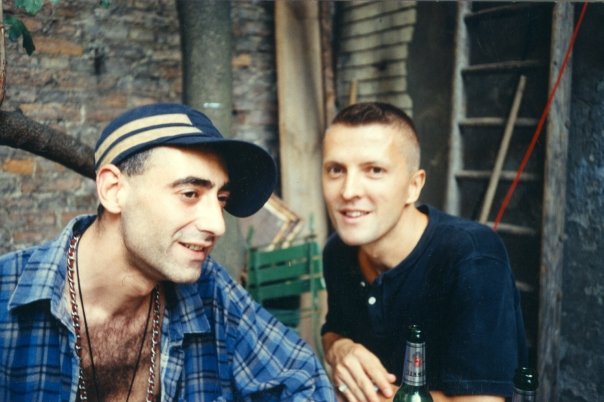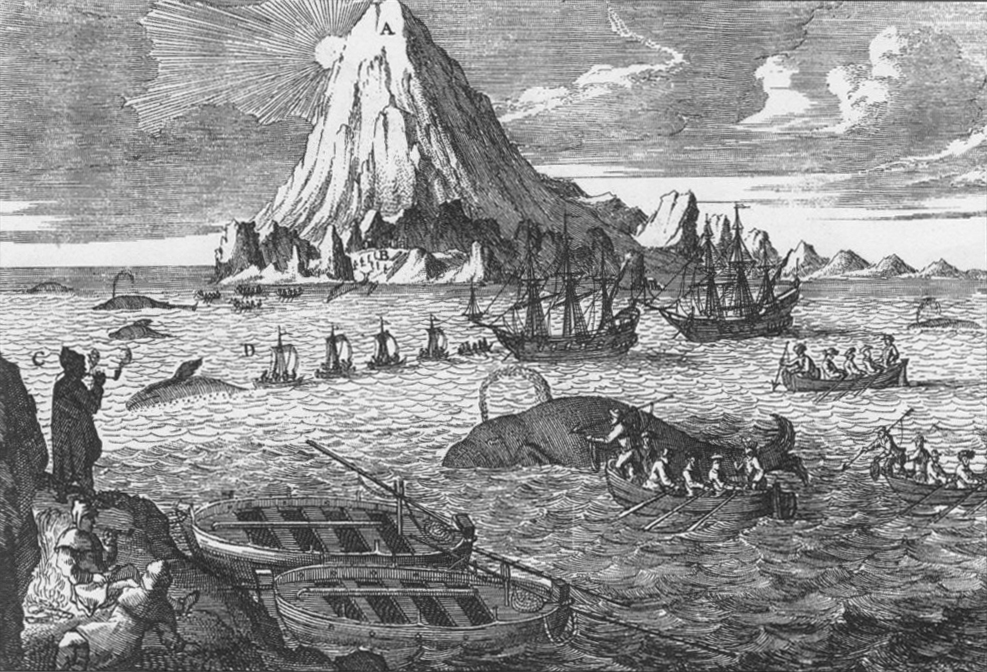|
Novalis (band)
Novalis was a 1970s progressive-rock group formed in Germany. Their best-known albums include ''Sommerabend'' and ''Wer Schmetterlinge lachen hört''. Band history Vocalist Jürgen Wentzel and bassist Heino Schünzel placed a newspaper advertisement in search of bandmates in Hamburg in 1971. They were joined by organist Lutz Rahn and drummer Hartwig Biereichel. Together with guitarist Carlo Karges they formed Mosaik, soon changing the name of the band to Novalis. After the release of their first album in 1973, Wentzel left the group and Heino Schünzel took on vocal duties. Carlo Karges, who would go on to join Nena's backing band, was replaced by Detlef Job. Austrian vocalist Fred Mühlböck joined the group in 1976. The lyrics used on the group's first album were written in English, but on the suggestion of new producer Achim Reichel, formerly of The Rattles, they began to sing in German in 1975. The group incorporated poems by their namesake, the Romantic-era writer Novalis, ... [...More Info...] [...Related Items...] OR: [Wikipedia] [Google] [Baidu] |
Hamburg
Hamburg (, ; nds, label=Hamburg German, Low Saxon, Hamborg ), officially the Free and Hanseatic City of Hamburg (german: Freie und Hansestadt Hamburg; nds, label=Low Saxon, Friee un Hansestadt Hamborg),. is the List of cities in Germany by population, second-largest city in Germany after Berlin, as well as the overall List of cities in the European Union by population within city limits, 7th largest city and largest non-capital city in the European Union with a population of over 1.85 million. Hamburg's urban area has a population of around 2.5 million and is part of the Hamburg Metropolitan Region, which has a population of over 5.1 million people in total. The city lies on the River Elbe and two of its tributaries, the River Alster and the Bille (Elbe), River Bille. One of Germany's 16 States of Germany, federated states, Hamburg is surrounded by Schleswig-Holstein to the north and Lower Saxony to the south. The official name reflects History of Hamburg, Hamburg's history ... [...More Info...] [...Related Items...] OR: [Wikipedia] [Google] [Baidu] |
Novalis
Georg Philipp Friedrich Freiherr von Hardenberg (2 May 1772 – 25 March 1801), pen name Novalis (), was a German polymath who was a writer, philosopher, poet, aristocrat and mystic. He is regarded as an idiosyncratic and influential figure of Jena Romanticism. Novalis was born into a minor aristocratic family in Electoral Saxony. He was the second of eleven children; his early household observed a strict Pietist faith. He studied law at the University of Jena, the University of Leipzig, and the University of Wittenberg. While at Jena, he published his first poem and befriended the playwright and fellow poet Friedrich Schiller. In Leipzig, he then met Friedrich Schlegel, becoming lifetime friends. Novalis completed his law degree in 1794 at the age of 22. He then worked as a legal assistant in Tennstedt immediately after graduating. There, he met Sophie von Kühn. The following year Novalis and Sophie became secretly engaged. Sophie became severely ill soon after the e ... [...More Info...] [...Related Items...] OR: [Wikipedia] [Google] [Baidu] |
Brain Records Artists
A brain is an organ that serves as the center of the nervous system in all vertebrate and most invertebrate animals. It is located in the head, usually close to the sensory organs for senses such as vision. It is the most complex organ in a vertebrate's body. In a human, the cerebral cortex contains approximately 14–16 billion neurons, and the estimated number of neurons in the cerebellum is 55–70 billion. Each neuron is connected by synapses to several thousand other neurons. These neurons typically communicate with one another by means of long fibers called axons, which carry trains of signal pulses called action potentials to distant parts of the brain or body targeting specific recipient cells. Physiologically, brains exert centralized control over a body's other organs. They act on the rest of the body both by generating patterns of muscle activity and by driving the secretion of chemicals called hormones. This centralized control allows rapid and coordinated responses ... [...More Info...] [...Related Items...] OR: [Wikipedia] [Google] [Baidu] |
Musical Groups Disestablished In 1985
Musical is the adjective of music. Musical may also refer to: * Musical theatre, a performance art that combines songs, spoken dialogue, acting and dance * Musical film and television, a genre of film and television that incorporates into the narrative songs sung by the characters * MusicAL, an Albanian television channel * Musical isomorphism, the canonical isomorphism between the tangent and cotangent bundles See also * Lists of musicals * Music (other) * Musica (other) Musica (Latin), or La Musica (Italian) or Música (Portuguese and Spanish) may refer to: Music Albums * '' Musica è'', a mini album by Italian funk singer Eros Ramazzotti 1988 * ''Musica'', an album by Ghaleb 2005 * ), a German album by Giov ... * Musicality, the ability to perceive music or to create music * {{Music disambiguation ... [...More Info...] [...Related Items...] OR: [Wikipedia] [Google] [Baidu] |
Krautrock Musical Groups
Krautrock (also called , German for ) is a broad genre of experimental rock that developed in West Germany in the late 1960s and early 1970s among artists who blended elements of psychedelic rock, avant-garde composition, and electronic music, among other eclectic sources. These artists incorporated hypnotic rhythms, extended improvisation, musique concrète techniques, and early synthesizers, while generally moving away from the rhythm & blues roots and song structure found in traditional Anglo-American rock music. Prominent groups associated with the krautrock label included Neu!, Can, Faust, Tangerine Dream, Kraftwerk, Cluster, Ash Ra Tempel, Popol Vuh, Amon Düül II and Harmonia. The term "krautrock" was popularized by British music journalists as a humorous umbrella-label for the diverse German scene, though many so-labeled artists disliked the term. The movement was partly born out of the radical student protests of 1968, as German youth rebelled against their coun ... [...More Info...] [...Related Items...] OR: [Wikipedia] [Google] [Baidu] |
German Progressive Rock Groups
German(s) may refer to: * Germany (of or related to) **Germania (historical use) * Germans, citizens of Germany, people of German ancestry, or native speakers of the German language ** For citizens of Germany, see also German nationality law **Germanic peoples (Roman times) * German language **any of the Germanic languages * German cuisine, traditional foods of Germany People * German (given name) * German (surname) * Germán, a Spanish name Places * German (parish), Isle of Man * German, Albania, or Gërmej * German, Bulgaria * German, Iran * German, North Macedonia * German, New York, U.S. * Agios Germanos, Greece Other uses * German (mythology), a South Slavic mythological being * Germans (band), a Canadian rock band * "German" (song), a 2019 song by No Money Enterprise * ''The German'', a 2008 short film * "The Germans", an episode of ''Fawlty Towers'' * ''The German'', a nickname for Congolese rebel André Kisase Ngandu See also * Germanic (other) * ... [...More Info...] [...Related Items...] OR: [Wikipedia] [Google] [Baidu] |
Neue Deutsche Welle
Neue Deutsche Welle (NDW, , "New German Wave") is a genre of West German rock music originally derived from post-punk and new wave music with electronic influences. The term was first coined by Dutch radio DJ Frits Spits on the popular nationwide radio station Hilversum 3, which was very popular among German listeners. Soon after that, the term was used in a record-shop advertisement by Burkhardt Seiler in an August 1979 issue of the West German magazine ''Sounds''. It was then used by journalist Alfred Hilsberg in an article about the movement titled ("New German Wave — From Grey Cities' Walls") in ''Sounds'' in October 1979. History The history of the Neue Deutsche Welle consists of two major parts. From its beginnings to 1981, the genre was mostly an underground movement with roots in British punk and new wave music. It quickly developed into an original and distinct style, influenced in no small part by the different sound and rhythm of the German language, whic ... [...More Info...] [...Related Items...] OR: [Wikipedia] [Google] [Baidu] |
World Wildlife Fund
The World Wide Fund for Nature Inc. (WWF) is an international non-governmental organization founded in 1961 that works in the field of wilderness preservation and the reduction of human impact on the environment. It was formerly named the World Wildlife Fund, which remains its official name in Canada and the United States. WWF is the world's largest conservation organization, with over five million supporters worldwide, working in more than 100 countries and supporting around 3,000 conservation and environmental projects. They have invested over $1 billion in more than 12,000 conservation initiatives since 1995. WWF is a foundation with 65% of funding from individuals and bequests, 17% from government sources (such as the World Bank, DFID, and USAID) and 8% from corporations in 2020. WWF aims to "stop the degradation of the planet's natural environment and to build a future in which humans live in harmony with nature." The Living Planet Report has been published every tw ... [...More Info...] [...Related Items...] OR: [Wikipedia] [Google] [Baidu] |
Whaling
Whaling is the process of hunting of whales for their usable products such as meat and blubber, which can be turned into a type of oil that became increasingly important in the Industrial Revolution. It was practiced as an organized industry as early as 875 AD. By the 16th century, it had risen to be the principal industry in the Basque coastal regions of Spain and France. The industry spread throughout the world, and became increasingly profitable in terms of trade and resources. Some regions of the world's oceans, along the animals' migration routes, had a particularly dense whale population, and became the targets for large concentrations of whaling ships, and the industry continued to grow well into the 20th century. The depletion of some whale species to near extinction led to the banning of whaling in many countries by 1969, and to an international cessation of whaling as an industry in the late 1980s. The earliest known forms of whaling date to at least 3000 BC. Coastal ... [...More Info...] [...Related Items...] OR: [Wikipedia] [Google] [Baidu] |
Concept Album
A concept album is an album whose tracks hold a larger purpose or meaning collectively than they do individually. This is typically achieved through a single central narrative or theme, which can be instrumental, compositional, or lyrical. Sometimes the term is applied to albums considered to be of "uniform excellence" rather than an LP with an explicit musical or lyrical motif. There is no consensus among music critics as to the specific criteria for what a "concept album" is. The format originates with folk singer Woody Guthrie's ''Dust Bowl Ballads'' (1940) and was subsequently popularized by traditional pop/ jazz singer Frank Sinatra's 1940s–50s string of albums, although the term is more often associated with rock music. In the 1960s several well-regarded concept albums were released by various rock bands, which eventually led to the invention of progressive rock and rock opera. Since then, many concept albums have been released across numerous musical genres. ... [...More Info...] [...Related Items...] OR: [Wikipedia] [Google] [Baidu] |



.jpg)



